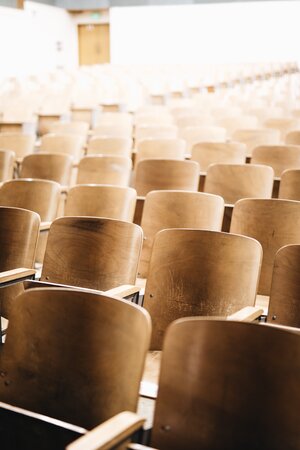Presentations and seminars
A central part of the third-cycle programme focuses on doctoral students presenting their research in different fora, for example, at seminars, workshops and conferences. The aim is often two-fold, it is partly about presenting and disseminating their research (this primarily applies to conferences), and partly about opportunities to receive further constructive input. At the Department of Communication and Media, each doctoral student is to present their ongoing research on at least three occasions: at an ideas seminar, a mid-way seminar and a final seminar. The structure and guidelines for these seminars are found in the document ‘Guide to ideas, mid-way and final seminars at the Department of Communication and Media’ (in Swedish)
In addition, doctoral students are encouraged to give further presentations at the department’s seminar series in order to obtain even more constructive criticism and valuable comments from the interdisciplinary staff. For example, it may involve presenting drafts for articles or thesis chapters in a work-in-progress seminar.The Department of Communication and Media is a member of Train, a network of departments that offer third-cycle education in media and communication studies. The network (taking it in turns) organises an annual doctoral student conference at which doctoral students from the universities have the opportunity to present ongoing work and to receive feedback from doctoral students and senior researchers from universities other than their own. It is a much-appreciated event that offers opportunities to network and (annually) meet fellow doctoral students from universities across Sweden. A basic principle for the Train network is that costs in connection with the annual conference are not to encroach on the doctoral student’s additional departmental funding (see below) but is to be funded by the departments. In addition to the annual conference, the Train network also organises certain recurrent doctoral courses.
Another popular activity in this context is the ECREA Summer School, a research school for doctoral students in media disciplines across Europe.
Academic conversations and collegial input are generally a central part of all research. In addition to the aforementioned more formal seminars, doctoral students are encouraged to create informal reading groups, to read and comment on each other’s texts and to contact colleagues in the department who they believe may have input on their current work. An informal exchange between what are referred to as ‘critical friends’ in higher education research is extremely valuable. In a wider context, it can be linked to how peer review is a central principle and practice for all academic work, for example in publishing, research applications and appointments.

